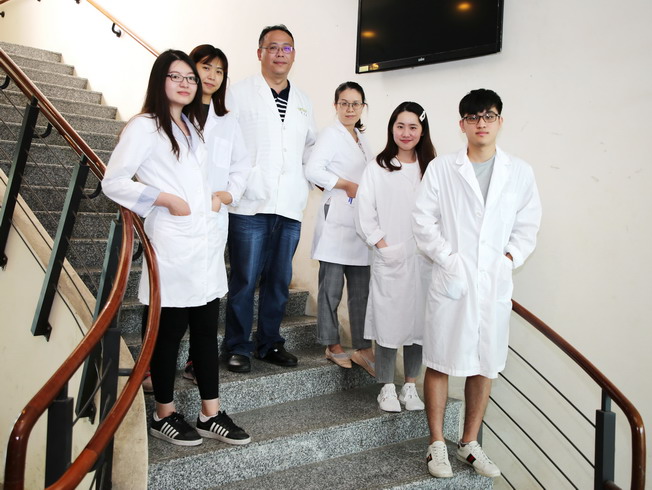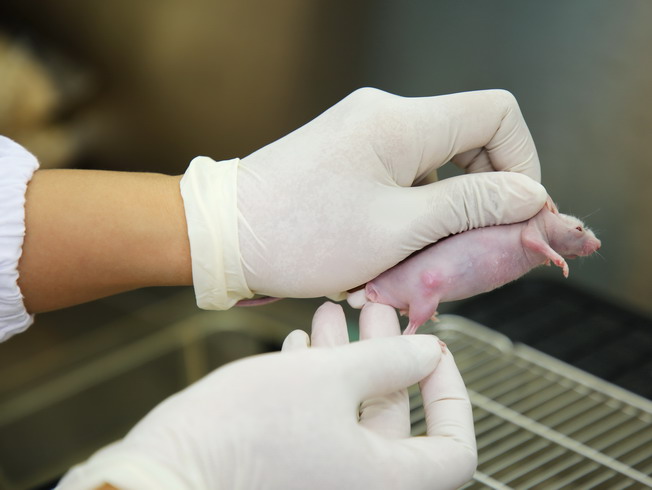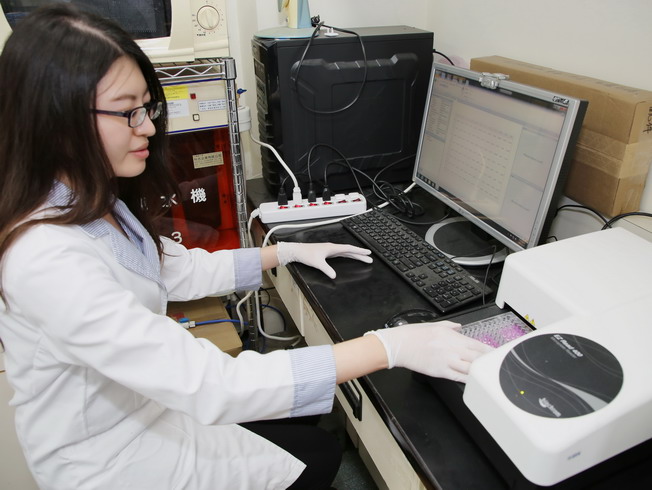| |
 |
News |
 |
Browsing: 1507 times

|
Date:2021-05-11
Bracket:2021 NCYU NEWS
Department:ncyu
|
 NCYU Teacher-Student Team Works with Linkou Chang Gung Memorial Hospital to Discover a New drug for Lung Cancer Treatment
NCYU Teacher-Student Team Works with Linkou Chang Gung Memorial Hospital to Discover a New drug for Lung Cancer Treatment
The team led by Associate Prof. Geng-Ruei Chang from the Department of Veterinary Medicine, National Chiayi University, has been working with Dr. Wu Ching-Feng from the Department of Chest Surgery, Linkou Chang Gung Memorial Hospital, to discover new strategies for the treatment of lung cancer. “Zotarolimus,” a new coronary artery stent coated with medicine, proves effective in cancer treatment by inhibiting the activation of the molecular pathway of “mTOR” in lung cancer cells. Animal experiments have suggested that it may shrink lung cancer tumors, increase survival rates and inhibit lung cancer metastasis. The research results were published by the internationally renowned journal “International Journal of Molecular Sciences” in last April.
In drug development, laboratory research and preclinical tests in animals are carried out to determine its efficacy and toxicity (or side effects) before human trials are conducted. Associate Prof. Geng-Ruei Chang from the Department of Veterinary Medicine has been devoted to studying the mTOR molecular pathway for more than ten years since his doctoral studies. Large side effects have been shown in the earliest phase. After repeated analysis and testing over a long period of time, he found an effective way to treat lung cancer. It may also be effective in treating colorectal, breast or other cancer commonly seen in people in Taiwan, if animal test results are promising over the upcoming three years. In the future, they will consider conducting human trials and rigorous clinical trials to further confirm its anti-cancer effect.
According to NCYU former President Chiou Yi-Yuan, who co-authored the article, the mTOR molecular pathway, while existing in normal and cancer cells in the body, is particularly active in cancer cells. In terms of the research and development of new anti-cancer drugs, a number of scholars and physicians around the world have been trying to find other new anti-cancer drugs based on this pathway. It is worthy of recognition that the research team led by Associate Prof. Geng-Ruei Chang has made such a major breakthrough.
The lung cancer has been ranked among the top ten leading causes of cancer death for decades in Taiwan. In recent years, it has even become a “new nationwide disease” in Taiwan due to environmental and air pollution, hazardous substances in the workplace, cooking fumes, or family’s genetic genes. Based on statistics from the Ministry of Health and Welfare, the lung cancer is not only one of the leading causes of cancer deaths in Taiwan, but also among the top three leading causes of cancer deaths in men and women. In average, more than 9,000 people die from lung cancer each year. Dr. Wu Ching-Feng from the Linkou Chang Gung Memorial Hospital indicated that, while drugs and surgery are traditionally used to treat lung cancer, most patients are terrified at the thought of surgery. According to clinical statistics, more than 70% of lung cancer patients are diagnosed at an advanced stage. However, there is still room for improvement in their five-year survival rate. The development of effective drugs against lung cancer provides an alternative to enhancing current treatment methods. As the cunning lung cancer cells are becoming increasingly resistant to traditional drug treatments, he was pleased to see that Chang’s research team has found a new drug to fight lung cancer after many years’ work.
|



|
 |

|
 |
|
 |
 |
|


 ][
][